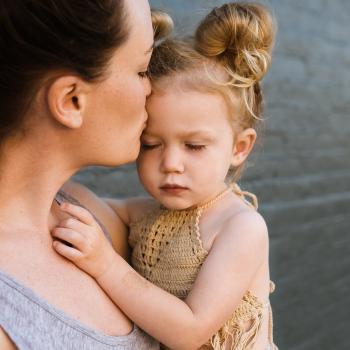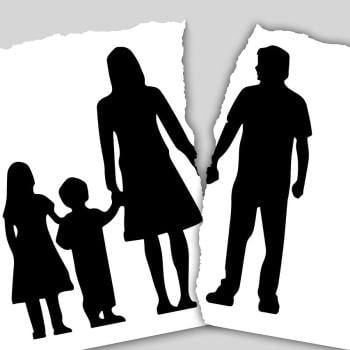When someone is wounded and hurting, they stop laughing. When someone is suffering, smiling is impossible. Laughter is replaced with echoes of agony.
How do you tell if someone is soul-sick? What can we check to see if someone is suffering from depression, anxiety, or sorrow? Is there an instrument of sorts available to us to let us know when someone we are in a relationship with is hurting?
Scientific evidence provides us with an answer: laughter. The loss of laughter is a strong indicator of relational, emotional, or spiritual illness.
When someone is not feeling well, we typically lay our hand on their forehead or cheeks to see if they feel warm. If they do, we search for the thermometer, which is never where we thought we left it, to check and see if they have a fever.
One of the health gauges we use to determine a person’s physical condition is to check their body temperature. Anything north of 101 is considered serious. As far as I know, no one has created a laugh-o-meter (yet), but it’s needed.
A Place for Grief, But . . .
Certainly, grieving has its place, and laughter is not always appropriate. Sixteen years ago, I lost my first grandson, and I struggled with deep sadness for months. When someone is overwhelmed with life, laughter often disappears for a while. But a chronic laugh-lost condition isn’t normal or healthy.
One of my dearest friends who went through the tragedy of experiencing their teen’s suicide told me weeks afterward how he should’ve noticed that his son stopped laughing months before.
My friend Sandra couldn’t make eye contact with me and stared at the carpet as she told me one of the saddest things I’ve ever heard from anyone, “I can’t remember the last time I laughed.” This attractive, well-educated, and gifted person had lost all the joy in her life.
When I went through my divorce, I realized how laughter had escaped me. It wasn’t until I roared at a silly sitcom that I realized how long it had been since I’d laughed and laughed hard. I was living in an almost constant state of stress.
Carolyn Todd of the New York Times wrote, “When you’re stressed, your nervous system initiates the ‘fight or flight’ response, causing a cascade of physiological effects: Your body releases stress hormones that cause your heart rate and blood pressure to rise. Your breathing becomes short and shallow, and your muscles tense.”
For the record, a “cascade of physiological effects” almost always leads to emotional and relational meltdowns.
Here’s some good news. The ability to laugh may not change your circumstances, but it changes us. No one argues about the benefits of laughter.
A Mayo Clinic article lists many:
- Laughter improves the intake of oxygen (which is a good thing).
- It stimulates your organs like your heart and lungs.
- Laughter releases natural endorphins, reduces stress hormones, and helps you relax.
- Laughing improves your circulation.
- It can improve your immune system and even reduce pain.
- And laughing can shake you out of depression.
Laughter Is Like Medicine
Laughter truly is medicine for the soul (Proverbs 17:22).
I love this insight by the late Brennan Manning in his book Reflections for Ragamuffins, “Laughter means that you have let go in reckless confidence of all that shackles you to yesterday, imprisons you and your small self today, and frightens you with the uncertainty of tomorrow.”
Okay, laughter is good for us, duh, I got it; thank you, Kurt. But why does it matter so much in our relationships?
Why should we check in on our friends and family when the laughter stops? Remember, one of the first things to stop when someone is hurting is their ability to laugh. And when your child, parent, spouse, or BFF lives in relational, emotional, or spiritual pain too long, they can become a twisted version of themselves and destined for a trainwreck.
So, here’s my relational advice. Ask yourself: When did you last hear your friends or family laugh? Perhaps it’s time for a laughter checkup. Don’t be afraid to lean in and help them regain their smile if it’s been too long.
Laughter is a profound measuring tool of our spiritual and emotional wellness. And when it comes to relationship matters, laughter matters more than most of us realize.

Of course, you can’t force anyone to laugh or make people smile. (Please don’t try; it’ll only worsen things.)
Here Are A Few Things You Can Do:
- Look for practical ways to encourage the downcast. Be authentic but intentional about building them up. The Apostle Paul wrote, “Encourage one another and build one another up” (1 Thessalonians 5:11, ESV). Tell them how much they mean to you and how needed they are.
- Drop them a note or an email recounting one of your favorite memories with them. Hopefully, it will be one with lots of laughing involved. If you have some pictures, send those, too, because visuals stimulate memory and endorphins.
- Take them for a long walk at one of their favorite places. Sometimes, a change of scenery and fresh air can transform a bad mood into a better one.
- Practice the art of listening. One of the worst things you can do with someone struggling with depression is to be a chatterbox. They may not have a lot to say, but it’s okay. Don’t be intimated by silence. Often, just being present is what they need more than anything.
- When appropriate, make some popcorn or grab a bowl of ice cream and sit with them to watch their favorite sitcom. And when something funny happens, laugh unapologetically! Laughter can be contagious.
Intrinsically, we all know the value of a good laugh. Sadly, however, we often forget how important laughter is to the health of our relationships.
As Charlie Chaplin once said, “A day without laughter is a day wasted.” Don’t let anyone you love waste away.















